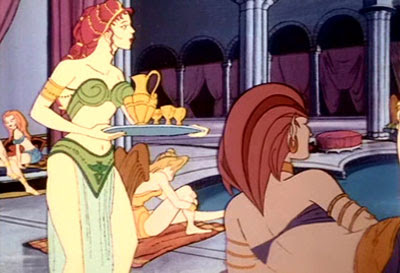I dare to say the "cultural appropiation" some times is a "necessary evil" to fight "islamophobia".
Let's imagine a Muslim D&D player creating a new campaign using as source of inspiration the
ridda wars, the fight betwee the first calipha and other self-proclaimed prophets. Then other could complain because this plot about fighintg against false prophets is a subtitely islamophobic (really a simple misunderstanding, but potentially troublemaker). Other could say some antagonist faction is an allegory about Maoist dictatorship what is destroying mosques in China (and even he may totally reason because the author don't like Chinese goverment).
Slavery can be possible even where it is forbidden, for example a landowner faking debt bills the workers can't pay for generations. (“There are two ways to conquer and enslave a nation. One is by the sword. The other is by debt.” ― John Adams 1826). In a fantasy world, (llegal) slavery
is possible by supernatural monsters, for example vampires kidnapping people for "blood farms".
When I was a little child, there was an episode of
Gagney & Lacey (a teleseries from 80's about two police women in New York) where one of them infiltrated in a workshop where illegal immigrants worked as slaves. An episode of the
80's short-live serie "Cover Up" was about traffick of women, I could understand what the bad guys were doing (very, very wrong), and I wasn't psychologically traumatized at all. Fiction can certain crimens, but remembering the respect for the victims in the real life. The risk is those crimes being showed as a "Overton window" to influence us for a growing tolarance, as if we should allow anything we can't eradicate totally.
I am uncle of a 11y niece. I can tolerate a fiction work where the evil guy has got a harem, for example Ming the Merciless in the 80's cartoon, but parents would think twice about to allow watching plots where the main male character has got a "harem" (and not only a group of female allies).




